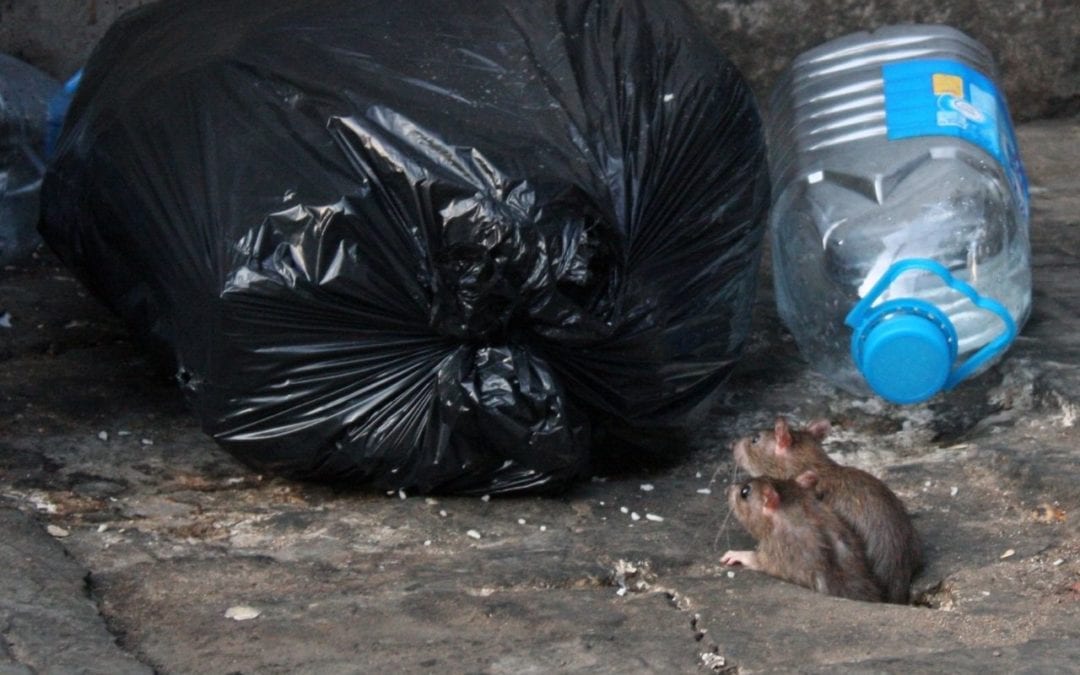You may have caught a news story that the population of rats is on the rise in residential and suburban areas in Massachusetts. Why is that? Well, rats generally were sustaining themselves on restaurant dumpster trash and keeping to the cities and areas of commercial zones. Through the pandemic many restaurants have shut down, leaving their dumpsters empty, and many people are no longer disposing of takeout containers at places of work. Everyone is home, ordering takeout at home, and disposing of food remnants in their own neighborhoods more than ever before. Rats are great at finding food sources to survive and thrive, and suddenly there are rats getting into your barrels and sometimes your homes.
This may sound like just a nuisance to you, but it actually can be a serious health risk for both dogs and humans. Rats carry a bacterial disease, called Leptospirosis, which can make dogs and humans very sick and even lead to life-threatening liver and kidney damage. The rats do not actually get sick with the disease but will shed the bacteria in their urine. Exposure to rat urine can make dogs and humans very, very sick. Humans can become infected with the disease by exposure to urine of a dog that is infected. Cats do not show illness from the disease but research is investigating if Leptospirosis may play a role in long-term kidney disease in felines.
Signs of Lepto include lethargy, loss of appetite, fever, increased thirst, abdominal pain, muscle pain, weakness, vomiting and diarrhea. If your dog is showing these signs, call your veterinarian right away and take care to avoid handling body fluids. If you inadvertently contact a body fluid, then wash your hands thoroughly right away.
Good news! There is a vaccine against 4 of the strains of Lepto that make dogs sick. The vaccine can be given to dogs over 12 weeks of age. Initial vaccination is followed by a booster in 2-4 weeks and then is repeated yearly. Unfortunately, there are three additional strains for which there is no vaccine available. The vaccine is safe but, as with any vaccine, there is a small risk of vaccine reaction. Some dogs may experience a low-grade fever or local soreness the day after receiving this vaccine. Rarely, a more serious reaction may occur. No vaccine is 100% effective, but if your dog is vaccinated against Lepto it will greatly reduce the risk of serious complications and death from the disease.
In addition to getting your dog vaccinated, here are some additional tips for preventing Lepto:
- Keep rodents under control and out of your dog food
- Consult a pest management expert if you are seeing rats on your property
- Place all dog food in a sealed plastic bin
- Keep your dog away from ponds, puddles or other standing water
- Keep your garbage covered
- Don’t feed your pets outside
- Wash outdoor water bowls daily with solution of 1 part bleach to 10 parts water

